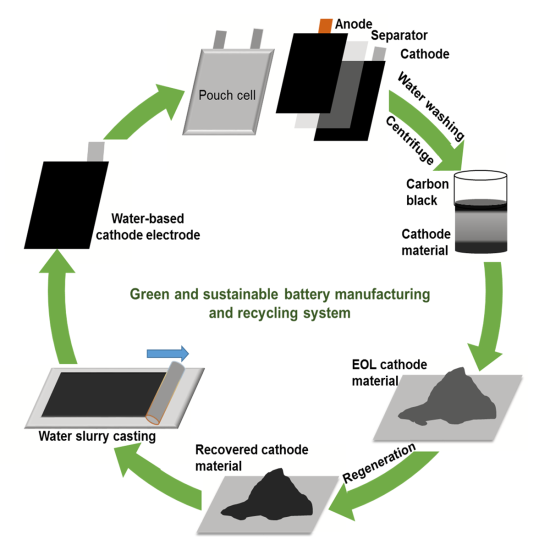What if we could make the process of making LIBs (Lithium Ion Batteries) a lot safer, their use less hazardous, and their recycling a low-risk enterprise? Virginia Tech researchers think they have positive answers to all three questions. By substituting water for organic solvents normally used in making LIB electrodes, researchers at Virginia Tech (Virginia Polytechnic Institute and State University), “…found that the electrodes fabricated via water-based processing demonstrate comparable rate performance and cycle life to the ones from conventional solvent based processing.” Beyond that, in a seeming bit of alchemy, using water-based processing with a water-soluble binder, “…enabled recovering the cathode compound from spent electrodes using water, which could be successfully regenerated to deliver comparable electrochemical performance to the original, pristine electrode.” “Humongous” Amount of NMP N-methyl-2- pyrrolidone (NMP), used as a solvent in making LIB electrodes, is expensive and harmful to reproductive functions. It was added to the European Commission’s restricted list in 2018. Despite those concerns, one …
Tag Archive
Below you'll find a list of all posts that have been tagged as “waste recycling”

